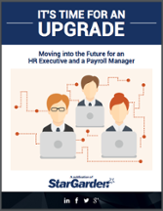Women on Corporate Boards – A Roadmap to Getting There for Young Professionals

In honor of International Women’s Day on March 8th, I thought we should continue the discussion about women on corporate boards (or lack of). Personally, I think the discussion needs to be broader than just within women’s groups and conferences. This is a discussion that the entire business world needs to participate in. I also think that when corporations and recruiters are looking for female representation, they are not considering women that work in small to mid-size business. And from all the stats out there, that is where the majority of women work. Women that work in smaller entities tend to be entrepreneurial and operationally focused. Great skills to have to contribute to corporate strategy on a board. Big companies tend to ‘swap’ board candidates and don’t open the pool to include the large number of qualified women working in small business or running their own businesses.
So let’s look at some statistics:
According to a report by the Government of Canada's Advisory Council in 2012, women held1:
- 10.3%.of seats on Canadian boards;
- 15.9% of board seats on FP500 companies;
- 0.0% of seats on 40% of FP500 boards, with significant variations by business sector; and
- 31% of federal GIC appointments, including those to Crown corporations and government agencies
Women make up 50% of workforce but hold under 20% of Fortune 1000 board seats2. Women have earned 10 million more degrees than men but with the current rate of progress, it will take 75 years to reach gender parity on Fortune 1000 boards2. What is troubling is by not having women in top leadership, organizations lose the ability to broaden problem solving perspectives that can lead to superior solutions. According to the Committee for Economic Development, companies with greater board diversity are more competitive because they better connect with their constituents, employees, investors, and the communities in which they operate.
Research from McKinsey & Company and Credit Suisse have documented greater2:
- Return on equity
- Return on invested capital
- Return on sales
A high-performing board is able to generate and implement better ideas and govern organizations that lead to sustainable progress. Women contribute by bringing diverse pool of thoughts to the table.
So women on boards is clearly a good idea. So what are some proactive things that you can do if one of your goals is to do board work?
The Globe and Mail recently had some good tips on preparing yourself to be a board member3:
Determine if you are up for the job:
Being a board member has time commitment requirement to it. It depends on meeting once every quarter or if you are part of sub-committees then the frequency of their meetings. There is also the personality aspect of the want to be board member. A top skill required is to be able to get along with others yet have the ability to ask tough critical questions in a collegial way. This along with senior leadership experience and extensive networking are needed to be in the inner circle to be referred to or informed about positions, as most board membership positions are not advertised.
Plan Early:
Appointment to a board member role sometimes takes as long as a decade. And those who have landed these positions have been nominated by a contact or were asked to serve. So far active networking has been the way to such appointments. Being clear on such a goal and planning for it is therefore an important step.
Experience matters:
In theory being a board member sounds great but the most important thing valued by boards is business experience. Without requisite experience how can anyone be able to advise and guide others? Most board members have at least 10 years’ experience in business and have held senior management positions. Most boards have broadened their candidate options beyond just CEO level experience to include experience in consulting, finance, law, and human resources. Additionally experience in technology and marketing are adding value to boards.
Consider Volunteering:
Recent survey done by Jobvite showed recruiters have positive impression of candidates who have volunteering experience 66% of the times and boards are no different4. If you are serious about serving on a board then doing volunteer work on boards of local schools, hospitals and art institutes is a good way to build confidence in your abilities and track record of your performance.
Certification:
Directors' training or certification granted by the Institute of Corporate Directors is a good way to show to potential boards that you have the training and governance knowledge to effectively lead and advise organizations.
References:
- http://www.swc-cfc.gc.ca/initiatives/wldp/wb-ca/wob-fca-eng.html
- https://www.ced.org/pdf/CED_Toolkit_on_Gender_Diversity.pdf
- http://www.theglobeandmail.com/report-on-business/careers/career-advice/how-to-land-a-seat-on-a- corporate-board/article1380127/?page=all
- http://web.jobvite.com/rs/jobvite/images/Jobvite_JobSeeker_FINAL_2012.pdf
- Photo Credit: Levo.com
About the Author:
Marnie Larson is the CEO of StarGarden Corporation and oversees its operations in Canada, US and New Zealand. She has over 20 years’ experience in the software industry and specializes in HCM, Business process automation and Workflow technology.
StarGarden’s integrated HCM comes with talent management and succession planning functionalities. Contact us today to find out how you can try our most powerful and user-friendly integrated HR system ever, StarGarden 5.0, absolutely free.

